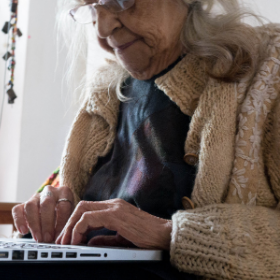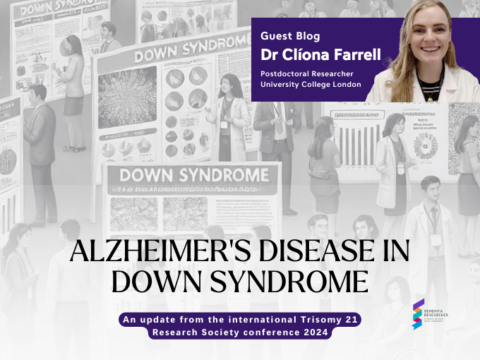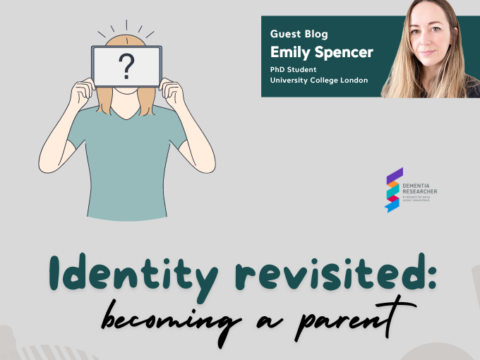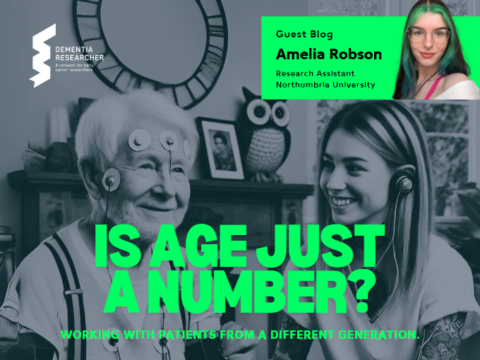Like many PhD students, I’ve had to rethink my research plans due to the impact of COVID-19. Before the pandemic I planned to develop an online support group intervention for carers of people with dementia and compare this intervention to a face-to-face support group. However, because of COVID-19 it became unsafe for support groups to meet face-to-face and online support groups became a very common alternative. This created an opportunity to study all of the existing support groups that moved online and explore what carers do and don’t enjoy about them. So, I designed an online questionnaire and planned to interview a subset of participants to ask them about their experiences with online support groups and was able to start collecting data at the end of January.

I didn’t have much experience with conducting qualitative research prior to starting this study, and although I knew that qualitative data is a lot more time consuming to handle, I wasn’t entirely sure of how long the process would take or if there would be complications that come with doing interviews online. As other students and early career researchers in the same position as me may be considering doing online interviews for the first time, I wanted to write a quick run down of the steps involved to give you an idea of where to start and what you’re getting yourself into!
- Scheduling Interviews
Scheduling online interviews is a little easier than physical ones, as there’s no need to find a place to meet or travel to the interview. It can still be difficult because carers of people with dementia can be very busy, especially as they might lack respite care due to lockdown. This means you may need to be flexible when organising interviews, such as working outside normal work hours, and may need to reschedule at the last minute.
- Collecting consent forms
Collecting consent forms online has been much harder than taking consent in person. Many of your participants won’t be used to signing things online, so make sure you account for needing extra time to explain to your participants how to do this.
- Conducting your interviews
The interviews I am conducting last 45-60 minutes and are done through Microsoft Teams due to data protection requirements. Although my participants have all been using video calling software to participate in support groups, most are new to Teams and I have needed to prepare extra time for them to join the meeting. However, using Teams makes it very easy to record the interview and you don’t need to worry about your recording device suddenly breaking like you would during face-to-face interviews (a constant source of nightmares for all qualitative researchers!).
If you are concerned about your participant population struggling with using a new software, it may be better to consider conducting your interviews over the phone.
- Transcription
Now that you’ve done the interview, the really time consuming bit begins! After the interview, I download the recording and use the Microsoft Word transcription feature to get a transcript. You can find a guide to using Word’s transcription feature here.
Done! Easy right? Just kidding, this tool isn’t perfect and is especially bad at figuring out strong accents. After using the automatic transcription, I then spend around 4 hours listening to the recording and going through the transcript to correct it, as well as making notes about emerging themes in the interview.
- Coding
Once the transcript is done you can put it into NVivo (or similar qualitative data analysis software) to code your data, which involves highlighting key themes and ideas. It takes me around 1 hour to code a transcript.
Altogether, this process takes around 7 hours per participant before the analysis and write up even begins. If you’re aiming for 20 participants, that’s 140 hours of work! It should be easy to see then how this past month has involved many long hours of gruelling hard work. At the same time, it’s been fascinating to hear about and examine the experiences of my participants, and I’ve found it really rewarding thinking about ways in which all of this work can potentially lead to making things better for these carers. I’m so grateful for their participation and openness.
P.S. If you know of anyone who is a member of a support group for people affected by dementia that you think may be interested in taking part, please share this link with them so they can find out more about the study:
Author

Bethany McLoughlin
Bethany McLoughlin is- a first year PhD student at the University of Warwick. Her research focuses on investigating the effectiveness of support groups for carers of people with dementia. Compare the effectiveness and accessibility of online and face-to-face support groups and to explore the pros and cons of each approach. Beth has adapted her research to these changing times and is also interested to learn about the influence of COVID-19 on support groups, and whether online support groups have been effective way of decreasing social isolation in carers during the pandemic. Beth will be sharing her research, study and personal journey in a monthly blog for Dementia Researcher.
What tips would you add to conducting interviews online? Reply below

 Print This Post
Print This Post




